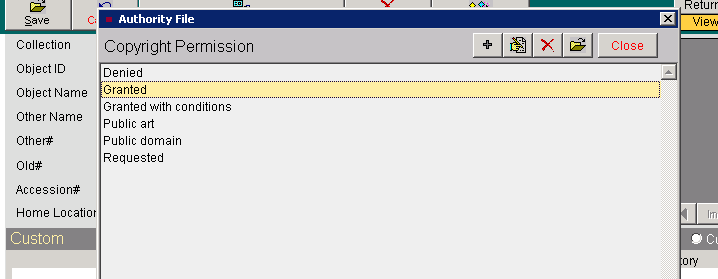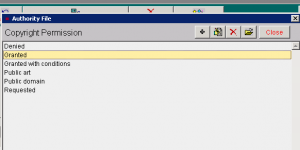In addition to the database project in part 1 of this series, during my time as the Belkin Art Gallery's Collections Assistant, I also worked on an ongoing collections management task: requesting exhibiting permissions and reproduction rights for copyrighted materials in the Belkin’s collections. This entailed locating, corresponding, and negotiating with copyright holders, such as artists, estates, representing galleries, and copyright management societies.

During my time working on this task, I was able to:
- Successfully negotiate permissions, resulting in the development of my communication skills and the granting of permissions (some with conditions or stipulations) for 485+ artworks and archival materials
- Proactively listen to artist concerns and research other art museums' copyright agreements, which led to me increasing my knowledge of Canadian Copyright terminology and the revision of the Belkin's copyright agreement to make it more straightforward (by omitting a waiver of moral rights clause)
One of the main initial challenges of this copyright task was determining how much time to spend searching for copyright holders or estate executors. Copyright searches can easily lead down an eternal rabbit-hole. However, this challenge allowed me to further develop not only my research skills, but also my time management skills. Aside from learning how to more effectively prioritize tasks and manage my time, carefully recording my research steps for ongoing searches—for example, the never-ending search for Kenneth Coutts-Smith's estate executor—was beneficial as I could more easily stop and revisit each search. Moreover, such documentation will also be advantageous to the individuals who continue searching where I left off.

In essence, performing this copyright task resulted in gains for both the Belkin and myself. Having copyright permission granted makes a significant difference in the Belkin’s ability to take on its mandated programming and having online reproduction permissions will contribute to the accessibility of the Belkin's new database as a research tool. As for myself, I was able to develop my communication, copyright, research, and time management skills.
